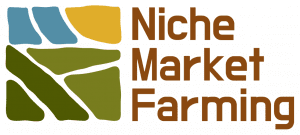The Niche Market Farming project aims to provide farmers, students, trainers and stakeholders in the food sector with a user-friendly web-based training platform focused on ancient agricultural varieties and breeds as major biodiversities, geographically indicated quality foods and products, alternatives to raw materials, especially suitable for small-scale agriculture in rural and less favored areas.
The project will help target groups to become aware of and competent in niche market agriculture and quality food heritage products that can provide small farms and rural communities with knowledge and skills that enable them to develop agricultural biodiversity, local recipes, organic foods and the creation of networks of farmers’ markets for more sustainable and resilient agriculture, especially in rural and disadvantaged areas.
This change based on “farm to fork” within the “Green Deal” can contribute to adapting and balancing the opportunities of small farms and villages to combine tradition and innovation, a perspective of mutual benefit in relationships between producers and customers. The retail food sector will also pay more attention to respecting the origin and peculiarities of food heritage, combined with quality guaranteed by producers and including ethical and fair trade standards that respect the dignity of agricultural workers, the conservation of agricultural biodiversity, protection of the environment and landscapes, animal welfare and the rights of producers and consumers to fair trade practices. The project aims, therefore, to open up new opportunities for small farmers and rural communities within the framework of the “Farm to Fork” and “Green Deal” objectives, to provide agricultural school students and universities new interests and training tools towards a more environmentally, socially and economically sustainable agricultural and food sector, offer advisory services, policy makers and decision makers. An innovative approach that helps tackle abandonment, digital divide in rural areas and sustain the economy of family farms and rural villages.
This production system based on family farming, food heritage of rural communities and linked to the protection of biodiversity and rural landscapes, needs specific knowledge and skills from agricultural skills to quality food production, marketing and relations with consumers and communication managers to be developed within a web-based self-study course, suitable for the blended learning methodology and aimed at the formal and non-formal recognition of the European Qualifications Framework (EQF) systems and the European Credits for Vocational Education and Training (ECVET). As a whole, the project wants to show paths towards sustainable agricultural practices and innovative marketing models to secure and create jobs in agriculture, especially in rural and less favored areas.
